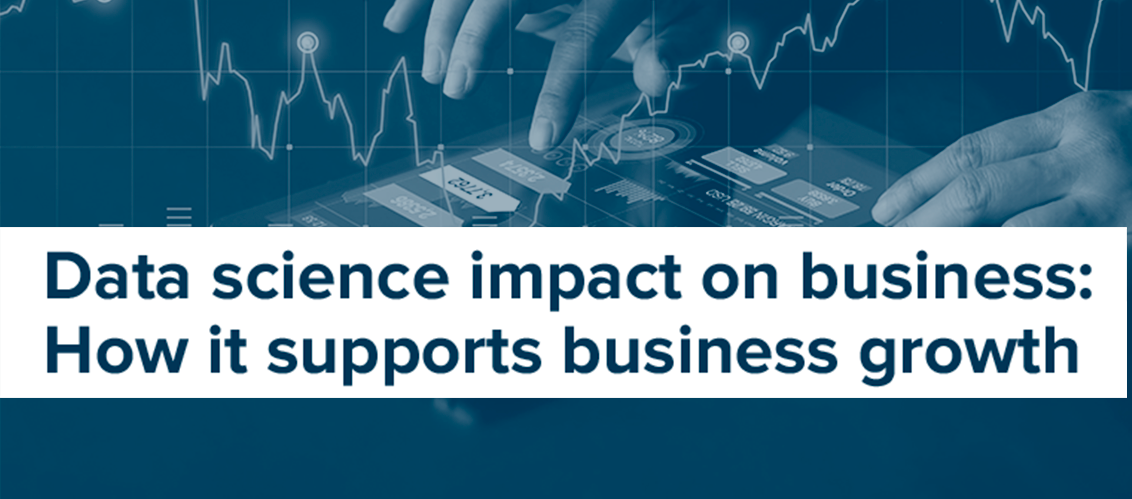
Introduction
In today’s data-driven world, businesses are generating vast amounts of data every day. From customer interactions to sales transactions, and from social media to IoT devices, the sheer volume and variety of data can be overwhelming. However, this data holds the key to unlocking business growth, improving operational efficiency, and driving innovation. This is where data science comes in – a powerful tool that can help businesses extract insights from their data and make informed decisions.
What is Data Science?
Data science is a multidisciplinary field that combines elements of computer science, statistics, and domain expertise to extract insights from data. It involves using various techniques, including machine learning, data visualization, and predictive analytics, to identify patterns, trends, and correlations within large datasets. Data scientists use these insights to inform business decisions, optimize processes, and drive growth.
Why is Data Science Important for Business?
Data science is essential for businesses that want to stay competitive in today’s fast-paced market. Here are some reasons why:
- Data-driven decision-making: Data science enables businesses to make informed decisions based on facts rather than intuition. By analyzing data, businesses can identify areas of improvement, optimize resources, and reduce risks.
- Improved customer experiences: Data science helps businesses understand their customers better, enabling them to create personalized experiences, improve customer satisfaction, and increase loyalty.
- Operational efficiency: Data science can help businesses streamline their operations, reduce costs, and improve productivity by identifying bottlenecks and areas of inefficiency.
- Competitive advantage: Businesses that leverage data science can gain a competitive advantage over their rivals by identifying new opportunities, improving their products and services, and staying ahead of the curve.
How to Drive Insights and Growth with Data Science
So, how can businesses drive insights and growth with data science? Here are some strategies to get you started:
1. Define Your Business Problem
The first step in using data science for business growth is to define a specific business problem you want to solve. This could be anything from improving customer retention to optimizing supply chain logistics. Having a clear problem statement will help you focus your data science efforts and ensure that your insights are relevant and actionable.
2. Collect and Clean Your Data
Data is the lifeblood of data science, and collecting and cleaning your data is essential for extracting insights. This involves gathering data from various sources, such as customer interactions, sales transactions, and social media, and ensuring that it is accurate, complete, and consistent.
3. Apply Machine Learning and Predictive Analytics
Machine learning and predictive analytics are powerful tools that can help you identify patterns and trends within your data. By applying these techniques, you can build models that predict customer behavior, identify areas of risk, and optimize business processes.
4. Visualize Your Data
Data visualization is a critical component of data science, as it enables you to communicate complex insights to non-technical stakeholders. By using visualization tools, such as Tableau or Power BI, you can create interactive dashboards that help you explore your data, identify trends, and track key performance indicators (KPIs).
5. Collaborate with Stakeholders
Data science is a team sport, and collaborating with stakeholders is essential for driving insights and growth. This involves working with business leaders, product managers, and other stakeholders to ensure that your insights are relevant, actionable, and aligned with business objectives.
6. Continuously Refine and Improve
Finally, data science is an ongoing process that requires continuous refinement and improvement. This involves iterating on your models, refining your data, and exploring new techniques and tools to stay ahead of the curve.
Real-World Examples of Data Science in Business
Here are some real-world examples of businesses that have used data science to drive insights and growth:
- Netflix: Netflix uses data science to personalize its content recommendations, improve customer engagement, and optimize its content production process.
- Amazon: Amazon uses data science to optimize its supply chain logistics, improve customer service, and drive sales through targeted marketing campaigns.
- Uber: Uber uses data science to optimize its ride-sharing services, improve customer experiences, and reduce operational costs.
Conclusion
Data science is a powerful tool that can help businesses drive insights and growth in today’s data-driven world. By defining business problems, collecting and cleaning data, applying machine learning and predictive analytics, visualizing data, collaborating with stakeholders, and continuously refining and improving, businesses can unlock the full potential of their data and stay ahead of the competition. Whether you’re a startup or an established enterprise, data science can help you achieve your business goals and drive success.
FAQ’s
Q1: What is data science? A1: Data science is a way to extract insights and knowledge from data to make informed business decisions.
Q2: Why is data science important for business? A2: Data science helps businesses make better decisions, reduce costs, and increase revenue by analyzing and interpreting large datasets.
Q3: What kind of data can be used for data science? A3: Any type of data can be used, including customer interactions, sales transactions, website traffic, social media data, and more.
Q4: How can data science improve customer experiences? A4: Data science helps businesses understand their customers better, enabling them to create personalized experiences, improve customer satisfaction, and increase loyalty.
Q5: Do I need to be a technical expert to use data science? A5: No, you don’t need to be a technical expert. However, you do need to have a basic understanding of data science concepts and how to apply them to your business.
